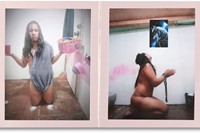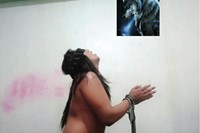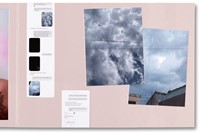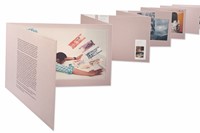The circumstances in which Miranda July’s latest book was conceived are as unique as a lunar eclipse, or some other celestial phenomenon requiring an unlikely and impossibly elaborate set of events to be perfectly aligned. While July’s entire body of work is suffused with an extraordinary and, at times, surreal magic – including her debut novel, The First Bad Man [2015] and her most recent film, Kajillionaire [2020] – this latest project by the acclaimed filmmaker, artist and writer is hung on a uniquely unexpected architecture. Services (published by Mack) came to be because, at the precise moment the escalating pandemic and the reality of an impending lockdown became frighteningly real to her, July received an offer of help she would’ve declined at almost any other moment in history.
In a cafe in her hometown of Los Angeles, she read an email from her child’s school informing her that they were closing their doors indefinitely due to Covid. The news registered as a shock. Reeling from the dawning reality of what the pandemic could mean, she was more receptive and porous to new possibilities presenting themselves than ever before. At this precise juncture – as one perceived vision of her world gave way to a new and uncertain future – July received a cold call, offering “services”. Normally, she might’ve hung up but, at this extraordinary moment, the opaque offer was enticing.
Not only did July indulge the salesperson in their pitch, but she began asking them questions about their own life. The voice on the other end of the line belonged to Jay, a karaoke-loving trans woman in the Philippines. The pair talked, transcending the boundary of the sales script and moving into more intimate, confessional territory. After suggesting they keep in touch, July began sending Jay a series of creative assignments; they responded with what July describes as “striking, inventive, honest images.” Their resulting six-month dialogue later became Services – a 23-foot-long “book sculpture” tracing the entire arc of their collaboration so far.
Below, we emailed with July about her ongoing artistic relationship with Jay, protecting her attention span from the insidious allure of mobile phones, and taking things “very, very far”.
Emily Dinsdale: Please could you introduce this project and the affinity you felt with Jay?
Miranda July: It started right as the pandemic hit – I had just read the email from my child’s school about school being indefinitely cancelled when I got a phone call from an unfamiliar number. It was a solicitor [salesperson] but maybe because I was in shock from the email I didn’t hang up. I listened to their pitch, and then I asked them where they were [the Philippines], how old they were [27], what their gender was [trans woman], what they liked to do [karaoke], and I suggested we keep in touch. We collaborated over the next six months and created the body of work that is Services.
ED: What do you think the emotional reverberations of the pandemic were on you personally?
MJ: I was in shock, always trying to process what was happening and plan out how to get by, emotionally and in terms of time, since I’m a mother. I was aware of how lucky we were to be able to stay home and keep functioning and, like everyone, I experienced some crushing disappointments; things I had worked towards for years were suddenly just gone. In retrospect, I think my degree of disappointment was actually an indication that something was off with my life – I made some massive changes over the last year that could be summarised by the wise proverb: YOLO … though I’m not convinced you do only live once.
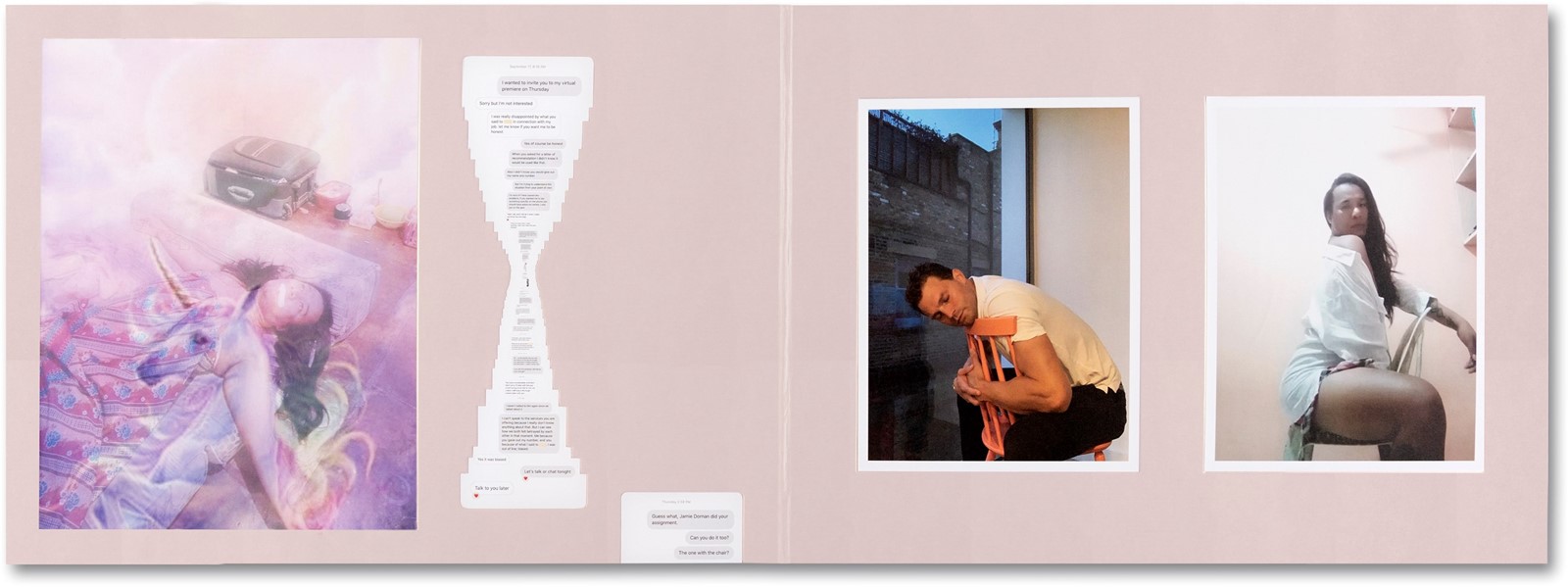
ED: How would you describe the arc of your relationship with Jay?
MJ: I mean, it’s still going on, but thus far I’d say we began like any new collaborators, trying to feel out how much we could trust the other. Then there was the (ongoing) phase of Jay blowing my mind by taking my nervous little assignments and coming back with such striking, inventive, honest images.
The whole time I’m paying her, like I would pay anyone for their labour, but also a relationship is growing – such that we became vulnerable to each other and sometimes pissed each other off and then recovered, through conversation. But this was built into the project. To collaborate, we would each have to contend with a reality that was completely unfamiliar to us, and so biases were unavoidable.
I was unable to use my experience as the measuring stick for reality – which isn’t always comfortable, but ultimately feels pretty great. You can just: let go. Nothing bad is going to happen if you loosen your grip on ‘your way’ of doing things. And I don’t want to speak for Jay, but I imagine she began doing this from the get-go, on that first phone call, as she answered my questions.
“I made some massive changes over the last year that could be summarised by the wise proverb: YOLO … though I’m not convinced you do only live once” – Miranda July
ED: When you began corresponding with her over message, did you have any idea of this becoming a book? How did you see it evolving?
MJ: As I told Jay from the start, I was asked by Süddeutsche Zeitung Magazin to create a new work for their Edition 46. Each year, they invite an artist to do this, and past artists include Sophie Calle and Maurizio Cattelan.
I hoped our collaboration would result in a work I could use for this, but of course I had no idea if that would pan out. Edition 46 is wonderfully available – it comes in the newspaper – but it was important to also make a very permanent and beautiful record of the work, which I did with this Mack Books special edition; we made them with Bookworks. There are only 25 of them and they are quite large, 23 feet long, so they are more like sculptural objects than books.
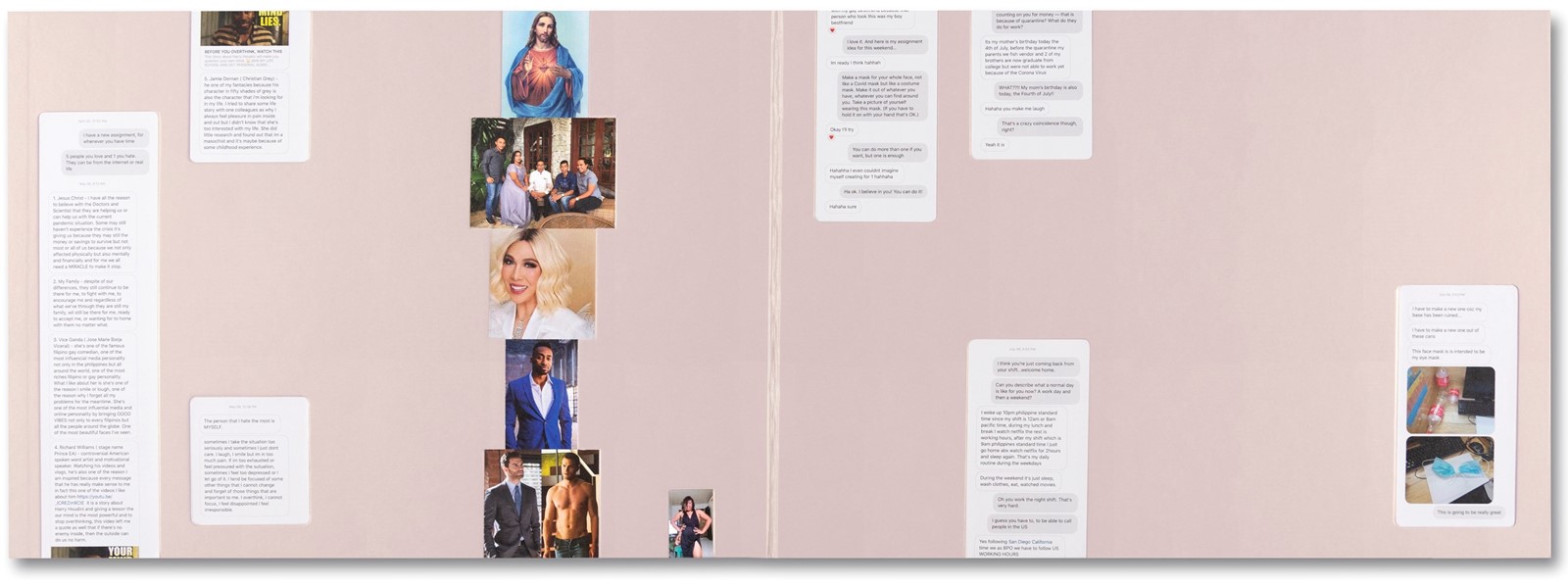
ED: One of the things I love about your work is how you often take an idea and travel with it to its logical, furthermost conclusion. Please could you talk a bit about this notion?
MJ: Ha, I guess I do. I think I have this fear of being a wimp, of not following through, and this has resulted in generally taking things very, very far.
ED: Your curiosity about the world and about other people’s interior lives seems so boundless. In what ways do you feel this is something that just occurs naturally within you? Or is it something you cultivate?
MJ: It’s not like everything and everyone interests me, but I guess I’m generally willing to go out on a limb when my instincts suggest it. And a certain amount of time this is rewarding and I learn something and then after many, many years of living like this I find I’ve sort of cultivated it as a practice. But see, I don’t love being tied to any particular way, so even this self-assessment feels like a trap. Which maybe indicates that I’m driven by a need for freedom more than curiosity.
“I have this fear of being a wimp, of not following through, and this has resulted in generally taking things very, very far” – Miranda July
ED: For many people, mobile phones have impoverished their attention span, but you have incorporated apps, messaging, and new technology in your work in very inventive and interesting ways, that connect people rather than isolate them. Could you talk about your relationship with technology and how you’ve managed to make use of its potential without seeming to have impaired your creativity?
MJ: I’m in the same boat as all of us, forever wrestling with my phone, trying to protect my attention span. My work depends on me being able to have long thoughts, sustained over years, so fuck Facebook etc for making the tools as unhealthily addictive as possible.
But the technology itself is always kind of interesting to me and I see it as our job, as people living at this time, to use it for our own ends and ultimately shape what it is. That was easier at the start, with projects like Learning To Love You More, and now it’s like trying to collaborate with the drug heroin but not get hooked in the process. I actually always get hooked and then I have to kick it again.
ED: What are you working on now? What future projects are in the pipeline?
MJ: I’m just finishing a novel that I began just before the pandemic. It’s a biggie.
Services by Miranda July is published by Mack and is available now in a limited edition of 25.


